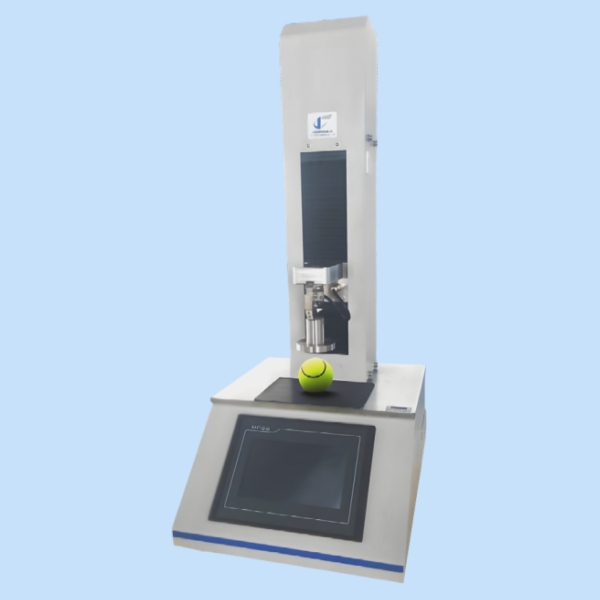1. Vad är syftet med en kompressionstestare för tennisbollar?
A Kompressionstest för tennisbollar mäter hur mycket en tennisboll deformeras under en viss belastning. Detta säkerställer att bollens fasthet, studs och elasticitet uppfyller de officiella standarder som fastställts av Internationella tennisförbundet (ITF) och GBT 20045vilket garanterar en jämn spelprestanda.
2. Hur utförs tennisbollens deformationstest enligt ITF TB 03/01?
ITF-testet innebär att tennisbollen placeras mellan två parallella plattor på Deformationsprovare för tennisbollar, applicerar en kontrollerad kraft längs dess diameter och mäter både framåt och avkastning deformation. Före provning genomgår varje kula nio förkompressioner för att eliminera inre sättningar, vilket säkerställer exakta och repeterbara resultat.
3. Vad är skillnaden mellan tennisbollens kompressionstestare och tennisbollens deformationstestare?
Termerna används ofta synonymt. Dock är Kompressionstest för tennisbollar fokuserar på den applicerade kraften och den resulterande kompressionen, medan Deformationsprovare för tennisbollar betonar förändringen i kulans diameter (deformation). Moderna system som Cell Instruments' TBCT-01 mäta båda parametrarna samtidigt.
4. Vilka standarder reglerar kompressions- och deformationsprov för tennisbollar?
Två viktiga standarder definierar tennisbollens kvalitet: GBT 20045som specificerar kinesiska nationella provningsförfaranden, och ITF:s regler för tennis med Testmetod ITF TB 03/01som beskriver deformationsgränser, förkomprimeringsprocedurer och krav på ringmått för olika kultyper.
5. Varför välja TBCT-01 Tennis Ball Compression Tester från Cell Instruments?
De TBCT-01 är en högprecisionstestare som är utformad i full överensstämmelse med GBT 20045 och ITF TB 03/01. Den erbjuder automatisk förkomprimering, digital deformationsregistrering och avancerade dataanalysfunktioner. Tillverkare, laboratorier och kvalitetsinspektionsorgan litar på den för tillförlitlig, repeterbar och standardkonform utvärdering av tennisbollars prestanda.

